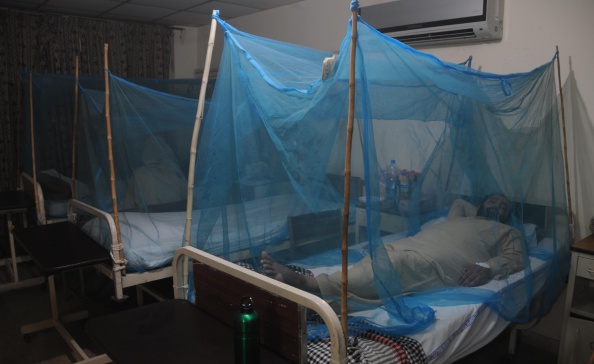
The Zika virus, suspected of causing serious birth defects, is playing havoc in South and Central America. In India, the Union Health ministry is gearing up to prevent the entry of the virus in the country.
According to media reports, the ministry is in the process of getting testing kits for detecting the virus. The government is also reportedly writing to Centers for Disease Control (CDC) to find out more about the infection and prepare accordingly and is planning to establish protocols to keep a close watch on any "sudden rise" in birth defects in any region of the country.
As per WHO the virus is already present in 21 of the 55 countries and territories across the Americas.
The WHO stressed that the Aedes aegypti mosquito, which carries Zika as well as Dengue and Chikungunya viruses, is already present in all countries in the Americas besides Canada and Chile. Since people in the region had not been exposed to Zika before it emerged in Brazil last May they lacked immunity, allowing the virus to spread quickly.
Does India need to worry?
According to a report in the Indian Express, the only time any trace of the virus was recorded in India was in 1952-53.
Antibodies to the Zika virus were recorded in a study titled 'Neutralising antibodies against certain viruses in the sera of the residents of India', published in a journal called The Journal of Immunology.

Dengue patients at a hospital in Delhi (2015). (Photo: Getty Images)
The study was conducted in 38 localities in six states in India and tested 15 vector borne viruses. According to the study, significant numbers of sera neutralised the virus.
Dr T Mourya, director, National Institute of Virology, Pune, told IE that there have been no outbreaks in India but passive immunity has been traced in Indian samples in the past."
There have been no reports on this virus in India since the 1952 study.
How did Indians develop passive immunity against Zika?
- Passive immunity refers to the process of acquiring immunity against a foreign body-antigen without actual exposure to the virus. To actively acquire immunity, the body's immune system has to be affected by the virus and fight it off.The virus has never been isolated in India so here is how the Indians might have acquired immunity against it.
- Dengue, Zika and Chikungunya are spread through a common vector, the Aedes aegypti mosquito.Dengue is however considered to be more violent and stronger relative of Zika.
- Since people in India have been exposed to these close relatives of Zika, they may have developed antibodies against the virus.
- According to medical experts since the proteins of all these viruses are similar, the antibodies formed are also similar.
But it does not mean that Indians cannot be affected by the virus since the mosquito because the Aedes aegypti mosquito thrives in the country.
Why is Zika causing panic abroad?
- The virus gets its name from the Zika forests of Uganda where it was first reported in 1947.It has so far been confined mainly to Africa, according to the WHO, with "small and sporadic outbreaks in Asia".
- Previous outbreaks of the virus have shown that when Zika affects adults, it causes symptoms like any other virus - fever, body ache, rashes, joint pain, reddening of eyes.
- The Zika virus, which is transmitted by mosquitoes, cannot spread between humans. However, for pregnant women, it can be transmitted to the foetus which can - as recent cases have shown - cause microcephaly.
- In extreme cases, it is thought to trigger Guillain-Barre syndrome - a nerve disorder that causes muscle weakness and paralysis.
- In Brazil 4,000 babies have reportedly been born with abnormally small heads. Pregnant women are reportedly now hoarding insect repellent, refusing to leave their home and shunning dark clothes that may attract mosquitoes. Some are reportedly going to clinics to freeze their eggs until a cure is found for the virus.
- In Colombia, where an estimated 700,000 people are at risk from infection, women have been told to wait at least six months before getting pregnant. Health officials in Brazil, Ecuador and Jamaica have given similar advice.
- The World Health Organisation said that the explosive spread of Zika virus to new geographical areas, with little population immunity, is cause for concern especially given the possible link between infection during pregnancy and babies born with small heads.
- Chaotic urban growth, underfunded health services and the widespread use of plastics, which trap rainwater and provide breeding grounds for mosquitoes, have also been blamed for the epidemic.


![BJP's Kapil Mishra recreates Shankar Mahadevan’s ‘Breathless’ song to highlight Delhi pollution [WATCH] BJP's Kapil Mishra recreates Shankar Mahadevan’s ‘Breathless’ song to highlight Delhi pollution [WATCH]](https://images.catchnews.com/upload/2022/11/03/kapil-mishra_240884_300x172.png)

![Anupam Kher shares pictures of his toned body on 67th birthday [MUST SEE] Anupam Kher shares pictures of his toned body on 67th birthday [MUST SEE]](https://images.catchnews.com/upload/2022/03/07/Anupam_kher_231145_300x172.jpg)






